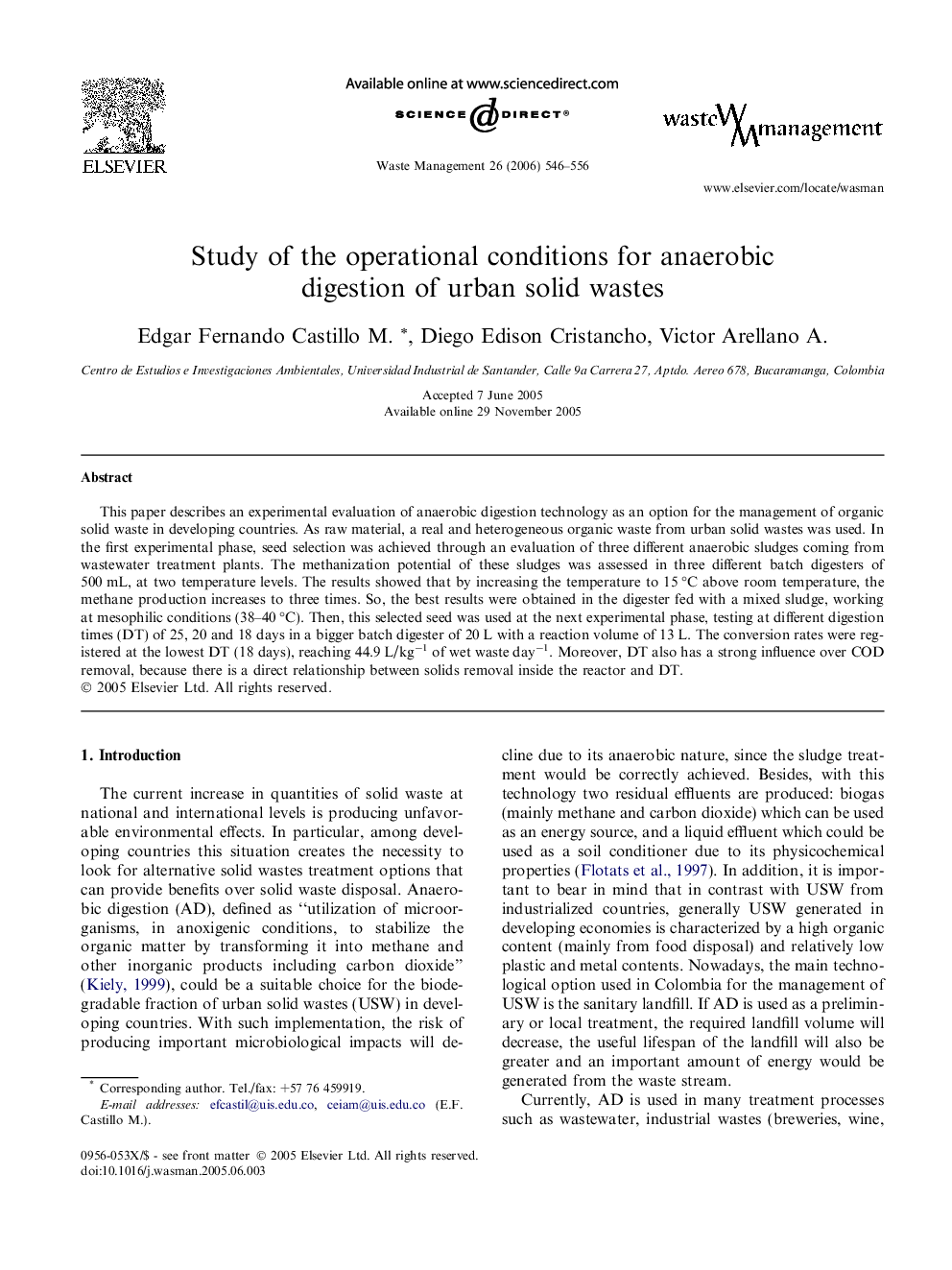| Article ID | Journal | Published Year | Pages | File Type |
|---|---|---|---|---|
| 4474047 | Waste Management | 2006 | 11 Pages |
This paper describes an experimental evaluation of anaerobic digestion technology as an option for the management of organic solid waste in developing countries. As raw material, a real and heterogeneous organic waste from urban solid wastes was used. In the first experimental phase, seed selection was achieved through an evaluation of three different anaerobic sludges coming from wastewater treatment plants. The methanization potential of these sludges was assessed in three different batch digesters of 500 mL, at two temperature levels. The results showed that by increasing the temperature to 15 °C above room temperature, the methane production increases to three times. So, the best results were obtained in the digester fed with a mixed sludge, working at mesophilic conditions (38–40 °C). Then, this selected seed was used at the next experimental phase, testing at different digestion times (DT) of 25, 20 and 18 days in a bigger batch digester of 20 L with a reaction volume of 13 L. The conversion rates were registered at the lowest DT (18 days), reaching 44.9 L/kg−1 of wet waste day−1. Moreover, DT also has a strong influence over COD removal, because there is a direct relationship between solids removal inside the reactor and DT.
